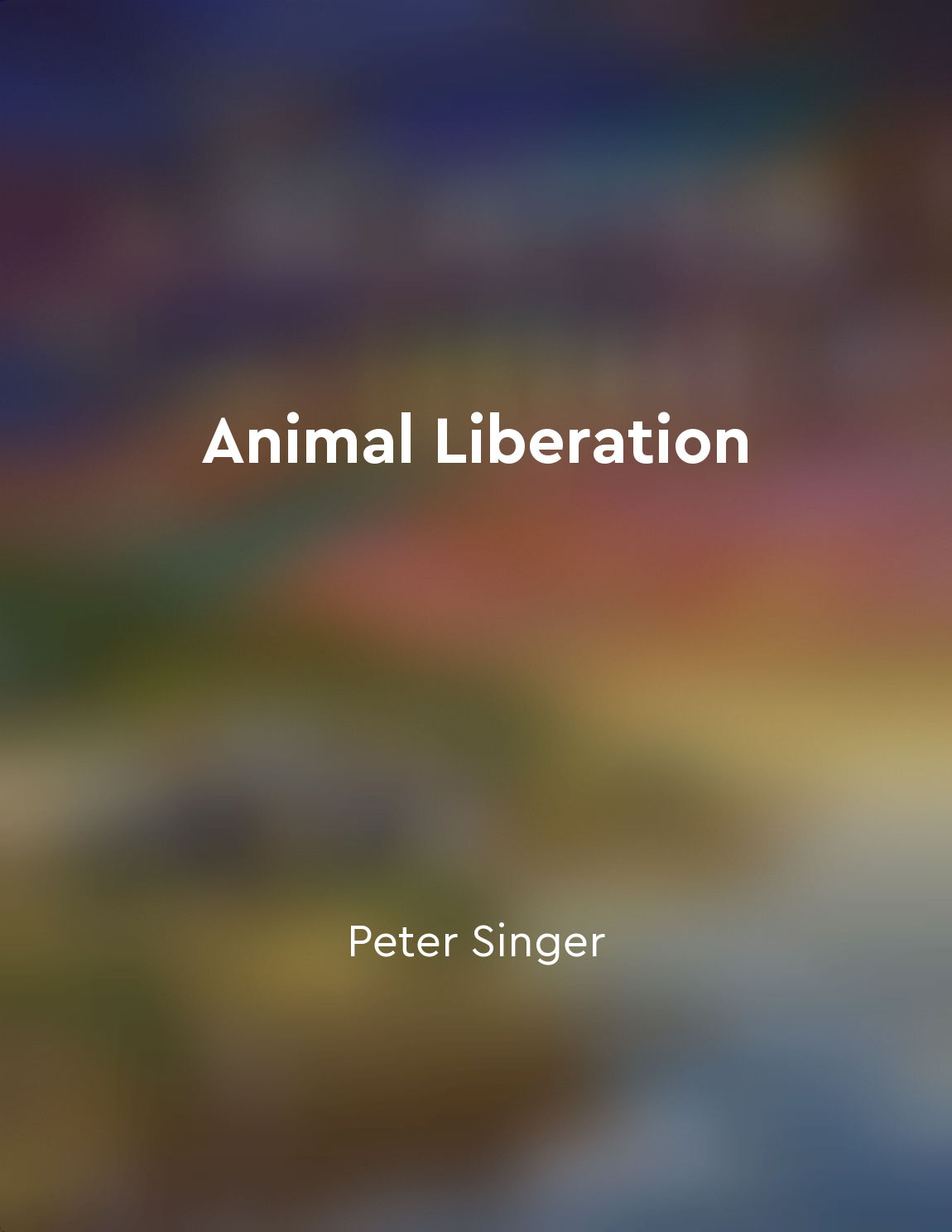Eating meat is equated with dominance and power from "summary" of The Sexual Politics of Meat (20th Anniversary Edition) by Carol J. Adams
The cultural equation of meat-eating with power and domination permeates our society in various ways. The act of consuming meat is often linked to notions of strength, virility, and control, reinforcing traditional gender roles and hierarchies. Men, in particular, are encouraged to consume meat as a symbol of their masculinity and authority. This association extends beyond the realm of individual consumption to larger social structures, where those who have the means to eat meat are seen as more powerful and affluent. By positioning meat as a symbol of dominance, the meat industry perpetuates a system of exploitation that mirrors the oppression of women and other marginalized groups. Animals raised for food are treated as commodities to be bought, sold, and consumed, much like women's bodies have been historically objectified and commodified. This parallel between the objectification of animals and the subjugation of women reveals the underlying power dynamics at play in our society. Moreover, the act of eating meat is often framed as a primal, instinctual behavior that harkens back to our evolutionary past. This narrative serves to justify and naturalize the consumption of animal products, reinforcing the idea that humans are inherently superior to other species and entitled to exploit them for our own purposes. The language used to describe meat-eating, with phrases like "sinking your teeth into a juicy steak" or "devouring a succulent roast," further reinforces the association between meat and power. In challenging the equation of meat-eating with dominance and power, we are not only questioning our dietary choices but also interrogating the larger systems of oppression that underlie them. By recognizing the ways in which meat consumption is intertwined with social structures of power and control, we can begin to unravel the connections between the exploitation of animals, the subjugation of women, and other forms of oppression. Only by disrupting these entrenched narratives can we work towards a more just and equitable society for all beings.Similar Posts

Women have sexual autonomy
In a society where power dynamics often favor men, the concept of women having sexual autonomy is revolutionary. This idea chal...
Taste reflects one's social aspirations and identity
Taste, as a form of cultural capital, serves as a powerful tool through which individuals can communicate their social aspirati...
The meat industry profits off the objectification of animals and women
The meat industry profits off the objectification of animals and women by reducing living beings to mere objects to be consumed...

Animals are not commodities to be bought and sold
In our society, animals are often treated as mere commodities, to be bought and sold at will. This attitude towards animals is ...
The consumption of meat perpetuates a patriarchal system
From the very beginning of our lives, we are conditioned to accept the consumption of meat as a normal and essential part of ou...
Industrial agriculture relies on fossil fuels
Industrial agriculture relies on fossil fuels. Everything about the way we eat today - the food we eat and how it is produced -...
Ignorance is a tool of manipulation
In Animal Farm, the pigs use the animals' ignorance as a powerful tool to manipulate and control them. The pigs, being the most...
Eating meat perpetuates a cycle of violence and inequality
The consumption of meat is deeply intertwined with systems of power, violence, and oppression. When we eat meat, we are partici...

Animal rights extend to all sentient beings
The idea that animal rights should extend to all sentient beings is a radical notion that challenges the conventional wisdom ab...
